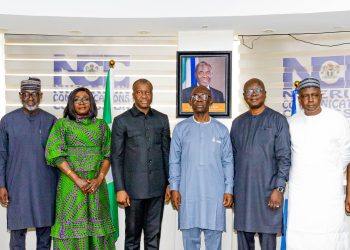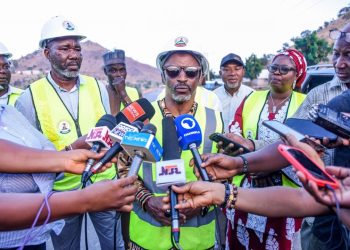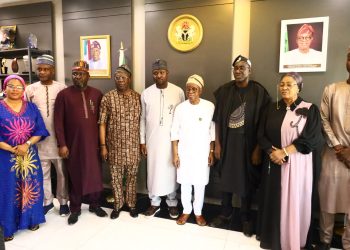By Nkechi Eze
The Chairman of the Independent Corrupt Practices and Other Related Offences Commission (ICPC), Dr Musa Adamu Aliyu, SAN, has reaffirmed the Commission’s commitment to strengthening corruption-prevention mechanisms within Nigeria’s transportation sector, describing the sector as central to national development, public safety, and economic stability.
According to an official statement issued by the Commission’s Spokesperson, J. Okor Odey, Dr Aliyu made this known on Monday when he received the Corps Marshal of the Federal Road Safety Corps (FRSC), Shehu Mohammed, mni, and his delegation during a courtesy visit to the ICPC headquarters in Abuja.
The ICPC Chairman noted that vehicles are frequently exploited in the perpetration of crimes, stressing that a more robust collaboration between the ICPC, FRSC, and other law-enforcement agencies is essential to ensuring safer roads, greater accountability, and improved efficiency within the national economy. He commended the FRSC for its recent innovations, particularly the Contactless Driver’s License Processing System, which he said has significantly reduced corruption risks by minimising unnecessary human interaction. He further praised the introduction of the Premium Driver’s License Service, noting that improved turnaround time for service delivery has helped strengthen public confidence in the Corps.
Dr Aliyu reiterated the Commission’s readiness to support the strengthening of the FRSC’s Anti-Corruption and Transparency Unit (ACTU), emphasising that internal controls and early preventive measures remain vital for mitigating unethical practices across public institutions. He added that ICPC staff, including official drivers, would benefit from specialised FRSC-led training on safe driving practices and proper road usage. He subsequently directed relevant departments within the Commission to work with the FRSC on joint sensitisation programmes aimed at promoting public safety and institutional integrity.
In his remarks, the Corps Marshal, Shehu Mohammed, mni, described the FRSC as Nigeria’s foremost agency responsible for road regulation and safety and highlighted ongoing reforms designed to enhance service delivery. He stated that the Corps now has the capacity to produce as many as 25,000 driver’s licenses daily, supported by improved data-protection measures that prevent identity-related fraud. Mohammed also explained that the newly introduced Contactless License Renewal Platform reduces physical interaction, speeds up processing, and significantly limits opportunities for corruption. He outlined additional innovations, including the Standard and Premium Driver’s License options, the enhanced National Vehicle Identification System (NVIS) which allows for faster vehicle-information retrieval, and the improved Passenger Manifest System designed to strengthen commuter safety and improve emergency-response measures.
In his closing remarks, the Secretary to the Commission, Mr Clifford Oparaodu, DSSRS, commended the FRSC for its wide-ranging reforms and expressed confidence that the collaboration between both agencies would continue to advance integrity, transparency, and efficiency within the nation’s transportation and public-service sectors
















